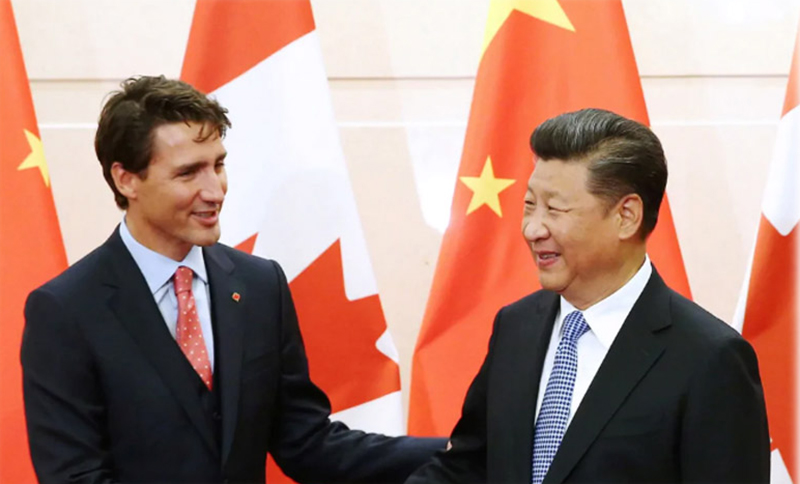 Justin Trudeau
Justin Trudeau In a world where political games are played in the shadows and where the echelons of power are masked by veils of duplicity, the recent public announcement by Canadian Prime Minister Trudeau about allegations of Indian involvement in the assassination of Hardeep Singh Nijjar has rattled many. But, one must ask, why is Canada so vociferous about India while seemingly turning a blind eye to China’s mischief?
The contradictory stances of the Canadian Liberal Party on the issue of foreign interference, especially from China, are both bemusing and alarming. When it was about China, alleged interference in Canada’s electoral process was played down by the Liberals. Yet, when it comes to India, even non-conclusive intelligence becomes the basis for a powerful accusation.
One might argue that every intelligence hint should be taken seriously. True, but how is it that multiple reports indicating China’s interference are shrugged off, while a single alleged report against India garners such attention? Is it not strikingly odd? Does it not seem more probable that China, with its track record, might be meddling than not?
We must recognize that Trudeau’s allegation came without proof whatsoever. When India called for evidence, Canada’s reaction was far from satisfactory. If the intent was genuine concern, why the murky waters of accusations without substantial evidence? Why not focus on a joint probe and diplomatic channels first?
The public statements from other nations, despite being cautious, have been rooted in their geopolitical strategies more than any real doubt over the intelligence. No one wishes to take sides prematurely, especially with the shifting sands of global power dynamics.
Trudeau’s international diplomatic dealings appear to lack consistency, where on one hand he raises concerns about India’s internal matters, but on the other, he overlooks crucial security reports pertaining to Chinese interference on Canadian soil.
Therein lies the contradiction. The Trudeau government’s hesitance in dealing with foreign interference, especially from China, whereas publicly accusing India without any evidence, seems to be driven less by concerns of national security and more by political motives.
Senior Canadian journalist Daniel Bordman recently stated in an interview “if you want to have some Canadian context about what’s going on and why he may have done this, here’s what I think is maybe the leading theory we can say as to why Trudeau has started to fight with India. In Canada, we have this big, big spectre of foreign interference from China. That’s a major scandal right now. It’s Justin Trudeau’s Liberal party, was getting help from the CCP at different points in elections… It’s a whole big thing that we need an investigation into”.
It is ironic that a country that prides itself on its democratic values, rule of law, and justice appears to be selectively sighted. Trudeau’s government needs to be equally assertive, if not more, in dealing with Chinese interference.
To truly stand as a beacon of justice and democracy, Canada’s approach to foreign interference, irrespective of the nation involved, must be consistent, transparent, and devoid of political calculations. Trudeau’s handling of India deserves scrutiny, yes, but so does his approach towards China.
The real question isn’t about which country might have crossed the line. It’s about whether Canada, under Trudeau’s leadership, has the moral fortitude to draw that line clearly in the first place and protect its national interests without fear or favor.
(Photo and Text credit: Khalsavox.com)
Support Our Journalism
We cannot do without you.. your contribution supports unbiased journalism
IBNS is not driven by any ism- not wokeism, not racism, not skewed secularism, not hyper right-wing or left liberal ideals, nor by any hardline religious beliefs or hyper nationalism. We want to serve you good old objective news, as they are. We do not judge or preach. We let people decide for themselves. We only try to present factual and well-sourced news.







